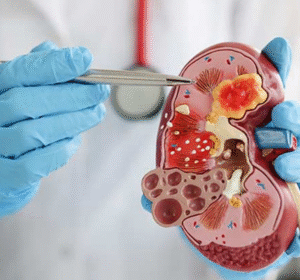1. Introduction
Exploring the contrasting roles of family physicians and internal medicine doctors can help patients make informed decisions about their healthcare.
2. Scope of Practice
Family physicians provide primary care to patients of all ages, from infants to seniors, while internal medicine doctors focus on adult healthcare.
3. Age Groups
Family physicians treat patients across the lifespan, including children and adults, whereas internal medicine doctors specialize in adult medicine.
4. Training and Education
Family physicians undergo residency training in family medicine, covering a broad range of medical specialties, while internal medicine doctors specialize in internal medicine during their residency.
5. Specialized Care
Internal medicine doctors receive specialized training in managing complex medical conditions, including chronic diseases and multi-system disorders.
6. Preventive Care
Both family physicians and internal medicine doctors emphasize preventive care, including screenings, vaccinations, and lifestyle counseling.
7. Continuity of Care
Family physicians often provide continuity of care for entire families, while internal medicine doctors focus on continuity of care for adult patients.
8. Chronic Disease Management
Internal medicine doctors are adept at managing chronic conditions such as diabetes, hypertension, and heart disease in adult patients.
9. Diagnostic Skills
Both family physicians and internal medicine doctors possess strong diagnostic skills, but internal medicine doctors may have more experience in diagnosing complex medical conditions.
10. Team Approach
Family physicians often work in multidisciplinary teams, collaborating with specialists to provide comprehensive care, while internal medicine doctors may work more independently.
11. Hospital Versus Outpatient Setting
Internal medicine doctors may have a stronger presence in the hospital setting, caring for hospitalized patients, while family physicians primarily practice in outpatient settings.
12. Acute Care Management
Family physicians are trained to manage acute illnesses and injuries in patients of all ages, while internal medicine doctors focus on acute care for adult patients.
13. Geriatric Care
Family physicians provide care for elderly patients as part of their comprehensive practice, while internal medicine doctors may specialize in geriatric medicine for older adult patients.
14. Pediatric Care
Family physicians are trained to provide pediatric care for children, including well-child visits and childhood vaccinations, while internal medicine doctors do not typically treat children.
15. Patient Relationships
Family physicians often develop long-term relationships with their patients and their families, while internal medicine doctors may focus more on building rapport with adult patients.
16. Preventive Screenings
Both family physicians and internal medicine doctors conduct preventive screenings, but family physicians may include screenings for pediatric and adolescent patients as well.
17. Psychosocial Care
Family physicians are trained to address the psychosocial aspects of health and illness for patients of all ages, while internal medicine doctors may focus more on medical management.
18. Coordination of Care
Family physicians coordinate care for multiple generations within a family unit, while internal medicine doctors focus on coordinating care for adult patients within the healthcare system.
19. Community Outreach
Family physicians often engage in community outreach programs, promoting health education and preventive care initiatives for families, while internal medicine doctors may focus more on adult health issues.
20. Collaboration with Specialists
Both family physicians and internal medicine doctors collaborate with specialists as needed to provide comprehensive care for their patients.
21. Continuing Medical Education
Both family physicians and internal medicine doctors engage in continuing medical education to stay current with advances in medical science and best practices in patient care.
22. Cultural Sensitivity
Family physicians and internal medicine doctors are trained to be culturally sensitive and provide care that respects the diverse backgrounds and beliefs of their patients.
23. Scope of Procedures
Family physicians may perform a broader range of procedures, including minor surgeries and obstetric care, while internal medicine doctors focus more on medical management.
24. Scope of Practice Laws
Laws governing the scope of practice for family physicians and internal medicine doctors may vary by state or country, affecting the types of services they can provide.
25. Patient-Centered Care
Both family physicians and internal medicine doctors prioritize patient-centered care, focusing on the individual needs and preferences of each patient to achieve optimal health outcomes.






